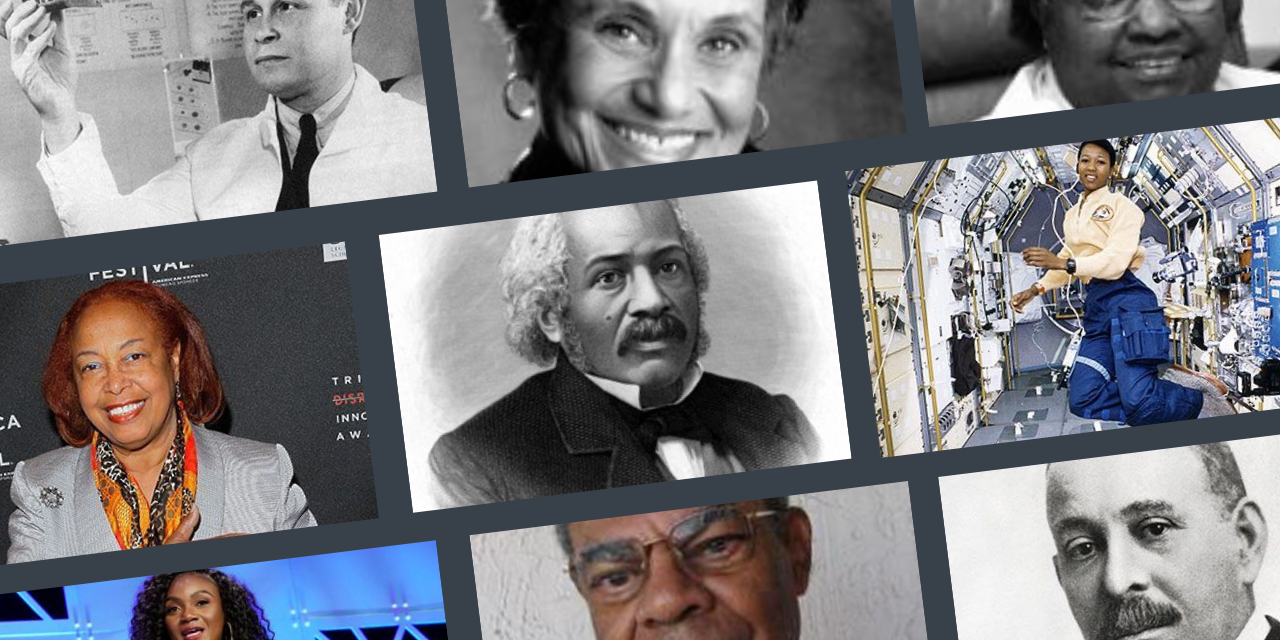In observance of Black History Month, HealthAxis honors the profound impact African American pioneers have made in the healthcare industry. Their groundbreaking work spans from overcoming historical barriers to leading contemporary medical advancements.
These pioneers faced immense challenges, including prejudice and discrimination, yet persevered with dedication and resilience. Their accomplishments paved the way for countless others and continue to inspire future generations of healthcare professionals.
1. Dr. James McCune Smith (1813 – 1865)
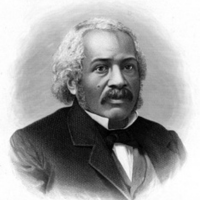
Dr. James McCune Smith, born into slavery in New York City in 1813, overcame immense barriers to become the first African American to earn a medical degree, which he obtained from the University of Glasgow in Scotland by age 24.
A man of exceptional intellect, Smith was fluent in multiple languages and upon returning to the U.S., he opened New York City’s first medical practice owned by an African American. He also served as the chief physician at the Colored Orphan Asylum in New York.
A committed abolitionist, Smith dedicated his life to the fight against slavery, passing away just weeks before the 13th Amendment abolished the institution, he had fought so hard against. His pioneering spirit and dedication to social justice continue to inspire during Black History Month and beyond.
2. Dr. Rebecca Lee Crumpler (1831 – 1895)
Dr. Rebecca Lee Crumpler shattered historical barriers in 1864 when she earned her medical degree from the New England Female Medical College, becoming the pioneering African American woman physician in the United States. Her initial medical practice in Boston set the stage for a remarkable career dedicated to healing and advocacy. Dr. Crumpler’s commitment to service led her to Richmond, Virginia, after the Civil War, where she provided vital medical care to newly freed African Americans, addressing the dire health needs of a community in transition.
Prior to her medical education, Dr. Crumpler honed her skills and compassion in nursing, a foundation that deeply influenced her patient-centered approach. Her experiences, coupled with her profound commitment to healthcare, inspired her to pen the “Book of Medical Discourses” in 1883. This significant work not only highlighted her extensive medical knowledge but also marked her as one of the first African American authors in the field of medicine.
Dr. Crumpler’s legacy extends beyond her medical achievements and literary contributions; she symbolizes resilience, compassion, and the relentless pursuit of equality in healthcare.
Note: No photos of Rebecca Lee Crumpler are known to exist.
3. Dr. Daniel Hale Williams (1856 – 1931)
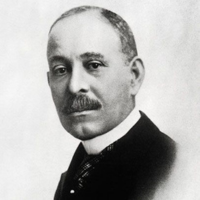
Daniel Hale Williams, a trailblazer in American medicine, overcame the racial barriers of the late 19th century by founding Provident Hospital in Chicago in 1884, the first Black-owned hospital that welcomed patients and staff of all races. This groundbreaking institution also established the first nursing school for Black nurses in the United States, creating unprecedented opportunities for African Americans in medical education and training.
Williams’s most notable achievement came on July 10, 1893, when he performed what is considered the first successful open-heart surgery, repairing the pericardium of a stabbing victim. This historic operation not only showcased his exceptional surgical skills but also solidified his reputation as a pioneer in the field of cardiology.
Beyond his surgical achievements, Williams co-founded the National Medical Association, providing a platform for Black medical professionals excluded from other medical associations. He also became the first African American physician admitted to the American College of Surgeons. Williams’s legacy, marked by his commitment to inclusivity and medical innovation, remains a source of inspiration in healthcare and beyond.
4. Dr. Lonnie Bristow (b. 1930)
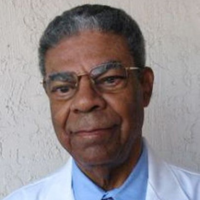
Association
Growing up in Harlem, Dr. Lonnie Bristow was introduced to the world of medicine through his visits to Sydenham Hospital, where his mother worked as a nurse. This early exposure to a diverse medical environment ignited his passion for healthcare, leading him to pursue advanced education at Morehouse College, City College of New York, and ultimately, a medical degree from New York University College of Medicine in 1957. Dr. Bristow’s journey from the vibrant streets of Harlem to the halls of academia set the stage for a distinguished career in medicine.
In the early 1960s, after completing his residency, Dr. Bristow established his practice in the Bay Area, specializing in internal and occupational medicine. His commitment to diversity and equitable healthcare access propelled him to significant leadership roles, culminating in his historic election as the first Black president of the American Medical Association (AMA) for the 1995–1996 term. Bristow’s presidency represented a milestone in the AMA’s history, reflecting the organization’s evolving stance on racial inclusivity since opening its membership to Black doctors in 1968.
Throughout his tenure and beyond, Dr. Bristow tirelessly advocated for patient-centric care, emphasizing the importance of the doctor-patient relationship and the ethical imperative to prioritize health over profit. He championed efforts to address health disparities, particularly in diseases like sickle cell anemia that disproportionately affect African Americans. Bristow’s leadership in the AMA and his advocacy for diversity and excellence in healthcare have left an indelible mark, inspiring future generations to pursue their dreams in the medical field with integrity and compassion.
5. Dr. Alexa Irene Canady (b. 1950)
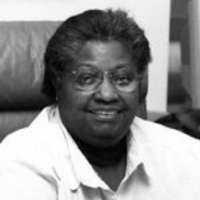
National Institutes of Health
Dr. Alexa Irene Canady’s journey in medicine is a testament to resilience and excellence. Despite facing a significant crisis of confidence during her college years, Dr. Canady’s perseverance led her to become the first African American woman neurosurgeon in the United States in 1981. Her remarkable career trajectory continued as she ascended to the role of chief of neurosurgery at Children’s Hospital of Michigan, where she made significant contributions to pediatric neurosurgery.
Intending to retire to Florida in 2001, Dr. Canady’s dedication to medicine drew her back into the operating room. She responded to the urgent need for pediatric neurosurgery services in Pensacola by joining Sacred Heart Hospital on a part-time basis, demonstrating her unwavering commitment to her patients and her profession.
Dr. Canady’s patient-centered approach not only endeared her to those she treated but also propelled her career forward, challenging her initial concerns about the limitations her identity might impose on her professional opportunities. Her success story, marked by groundbreaking achievements and a deep commitment to her patients, continues to inspire and serve as a beacon of possibility, demonstrating that dedication, skill, and compassion can transcend barriers and redefine the landscape of medical excellence.
6. Dr. Charles Drew (1904 – 1950)
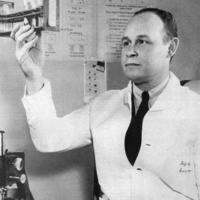
Dr. Charles Drew’s contributions to medical science began at McGill University, where he developed a keen interest in blood transfusions and blood storage. His pioneering work led to the development of methods to store blood plasma for extended periods, fundamentally changing blood banking practices. During World War II, as the director of a major blood bank project in Britain, Dr. Drew oversaw the collection of over 14,500 pints of plasma, significantly impacting the war’s medical response.
In the United States, Dr. Drew established the American Red Cross blood bank and introduced the innovative concept of “bloodmobiles,” mobile units for blood donation and storage, earning him the title “father of the blood bank.” However, Dr. Drew’s principles led him to resign from the Red Cross due to their policy of segregating blood donations by race.
After the war, Dr. Drew continued to influence the medical field as a professor and surgeon at Howard University and Freedmen’s Hospital, mentoring the next generation of medical professionals. His legacy, marked by his contributions to blood transfusion techniques and his stand against racial discrimination in medicine, is a significant part of his story celebrated during Black History Month.
7. Dr. Marilyn Hughes Gaston (b. 1939)

National Institutes of Health
Dr. Marilyn Hughes Gaston’s journey to becoming a luminary in the field of sickle cell disease research began with a transformative encounter during her internship at Philadelphia General Hospital in 1964. Confronted with a baby suffering from a swollen, infected hand, Dr. Gaston delved into the complexities of sickle cell disease, a condition unfamiliar to her until her supervisor’s intervention. This moment marked the beginning of Gaston’s lifelong commitment to understanding and combating this global health issue.
Dr. Gaston’s dedication to sickle cell research led her to the National Institutes of Health, where she played a pivotal role in the Sickle Cell Disease Branch. Her landmark 1986 study was instrumental in establishing a national newborn screening program for sickle cell disease, fundamentally changing the approach to early diagnosis and treatment. Her research not only highlighted the necessity of newborn screening but also demonstrated the life-saving potential of penicillin in preventing fatal sepsis infections in affected children.
In 1990, Dr. Gaston broke new ground as the first African American woman to lead the Health Resources and Services Administration’s Bureau of Primary Health Care. Her trailblazing career continued as she became one of the first African American women to attain the rank of assistant surgeon general and rear admiral in the U.S. Public Health Service. Dr. Gaston’s distinguished service has earned her the highest honors within the Public Health Service, reflecting her profound impact on healthcare and her pioneering contributions to the fight against sickle cell disease.
8. Dr. Patricia Bath (1942 – 2019)
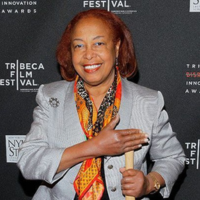
Getty Images
Dr. Patricia Bath’s groundbreaking achievements in ophthalmology have left an indelible mark on the field of eye care and serve as a beacon of inspiration during Black History Month. In 1973, Bath shattered barriers by becoming the first African American to complete an ophthalmology residency at New York University’s School of Medicine. Her trailblazing journey continued at UCLA’s School of Medicine, where she was appointed the first female faculty member in the Department of Ophthalmology.
Driven by the conviction that “eyesight is a basic human right,” Dr. Bath co-founded the American Institute for the Prevention of Blindness in 1976, dedicating her career to eliminating preventable blindness. Her pioneering spirit led her to explore the possibilities of laser technology in ophthalmology during the early 1980s. This exploration culminated in the invention of the laserphaco probe in 1981, a revolutionary device that transformed cataract surgery, making it safer and more efficient.
When Dr. Bath patented her invention in 1988, she not only advanced the field of eye care but also made history as the first African American woman to receive a medical patent. Her legacy as a physician, innovator, and advocate for equitable eye care continues to influence and inspire, underscoring the profound impact of her contributions to medicine and society.
9. Dr. Mae Jemison (b. 1956)

Mae Jemison, MD, shattered the glass ceiling in 1992 by becoming the first African American woman to travel into space. Yet, Dr. Jemison’s remarkable journey extends far beyond her historic spaceflight; she is also a dedicated physician committed to enhancing healthcare on a global scale. Her unique blend of medical expertise and astronaut training has positioned her as a pivotal figure in the intersection of health and technology.
After serving as a medical officer in the Peace Corps in Africa, Dr. Jemison gained invaluable insights into the challenges of healthcare delivery in resource-limited settings. This experience, coupled with her knowledge of satellite telecommunications acquired during her time with NASA, inspired her to establish the Jemison Group. This innovative venture seeks to leverage advanced technology to bridge gaps in healthcare access and quality in underserved regions.
Drawing inspiration from the legendary Martin Luther King Jr., Dr. Jemison is a vocal advocate for equity in healthcare, challenging the disparities that persist both domestically and internationally. Her proactive approach to problem-solving and her commitment to ‘doing things,’ as King advocated, underscore her contributions to both science and society. Dr. Jemison’s legacy serves as a beacon of progress, embodying the spirit of innovation and social justice.
10. Dr. Kizzmekia Corbett-Helaire (b. 1986)

Getty Images
In the early days of 2020, as a novel coronavirus began its rapid spread, Kizzmekia Corbett, PhD, was ideally positioned at the National Institutes of Health (NIH) to spearhead a response. With five years of research on coronaviruses under her belt, the North Carolina native and senior research fellow at the NIH’s Vaccine Research Center wasted no time. Within hours of the virus’s genetic sequence being published in January, Dr. Corbett and her team had crafted a blueprint for a vaccine, setting the stage for an unprecedentedly swift development process.
By collaborating with Moderna, Dr. Corbett’s innovative work led to one of the first COVID-19 vaccines, receiving emergency authorization from the U.S. Food and Drug Administration in December 2020. This milestone marked a historic achievement in vaccine development, characterized by both its rapid timeline and the vaccine’s efficacy. The success of the mRNA technology used in the Moderna vaccine paved the way for similar approaches, notably the Pfizer-BioNTech vaccine, contributing significantly to global vaccination efforts.
Recognizing her pivotal role in combating the pandemic, Dr. Corbett was subsequently invited by the Harvard T.H. Chan School of Public Health to lead her own research lab, focusing on pandemic preparedness and the pursuit of universal vaccines. Her commitment to building a comprehensive understanding of viruses to enhance future vaccine development underscores her vision for a world better equipped to face health crises, a mission she passionately continues as an assistant professor and researcher.
These ten individuals represent just a fraction of the countless African American men and women who have contributed to healthcare and medical science. Their dedication, innovation, and resilience have not only advanced the field of healthcare but also paved the way for future generations of medical professionals. As we celebrate Black History Month, HealthAxis is proud to honor these pioneers and their enduring legacies in shaping a healthier world.



